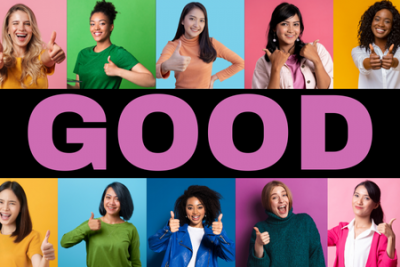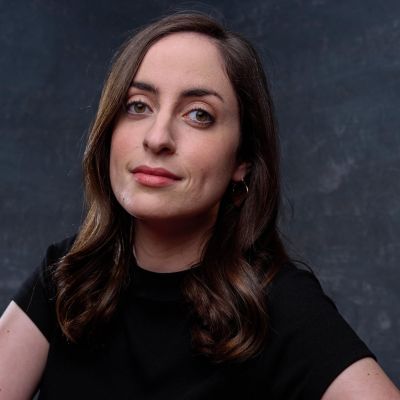Elizabeth Thompson, Trinity Communications

Rebecca Wahls is Duke Theater Studies’ Artist-in-Residence for the 2024-2025 academic year.
A director, writer and producer of film, theater and new media, Wahls holds an MFA in Directing from Carnegie Mellon University, where she was a John Wells Fellow from 2020-2023. Her first feature film, “Him," is currently playing festivals across the U.S.
This semester, Wahls is teaching Acting for the Camera and the first-year seminar Investigating Adaptation. She is also directing a new musical play, “GOOD,” which she wrote after Bertolt Brecht’s “The Good Woman of Setzuan.”
In this ensemble-driven play, Wahls reimagined “The Good Woman of Setzuan” for the 21st century, including an original pop score by New York City composer Dillon Feldman. She set out to “explore the measures women take to maintain their identity in a world that consistently proves they will never be enough, but also strongly advises them against being too much."
“GOOD” will be presented February 13-15 at 8 PM in the Sheafer Lab Theater, Bryan University Center. Tickets are on sale now.
We caught up with Wahls and asked her how she came to create “GOOD” and what audiences can expect to see at the performances.
How did you become interested in adapting Brecht’s “The Good Woman of Setzuan”?
I grew up on ensemble-driven theater, which makes Brecht’s style of work a natural fit for me as a director. I first encountered “The Good Woman of Setzuan” during my MFA work at Carnegie Mellon University. In the play, a woman is tasked by the Gods to “be Good” or else they’ll destroy the world and start over. In order to maintain her good status, she invents an alter ego: her male cousin. Whenever things get too out of control and some not-good action is needed, he intervenes.
I felt that there was something to be mined by having our Woman’s alter ego be another woman: a Girl Boss. Through this change, I center exploration of the spectrum of femininity. We become different people to accomplish different objectives, whether those objectives are about career, power or safety. I’m interested in the source material’s theme of perfectionism, and how a major expectation of perfectionism is not to show effort or demonstrate how hard it was to achieve what you have.
You have a background in musical theater. Please tell us a little about the music in “GOOD”.

The music is a collaboration between me (lyrics) and the wonderful composer Dillon Feldman (music). Dillon and I collaborated previously on the new musical “this old haunt," where he contributed music and orchestrations. I directed the project and was involved in a generative way since its inception, but not a lyric or line was written by me.
Collaborating with Dillon directly as lyricist has been really rewarding because we share an overly earnest sense of humor and love for musical storytelling. Like the rest of the play, the lyrics are adapted from two key translations, with a lot of extra flair from me (and one of the songs is adapted from a standalone Brecht poem.)
A key difference from traditional musical theater is that “GOOD” is a play with music rather than a full-blown musical. Like in Brecht’s original work, the music comments on the action rather than moving it forward.
How have students contributed to the development of “GOOD,” and how have they reacted to it?
Epic ensemble theater is just the best, and I think that everyone is having a great time. Everyone gets to exercise their comedic and physical skills while working together to tell a story with truly urgent themes. They have fearlessly engaged with this material. I have made rewrites both sweeping and miniscule based on what the actors have brought to their performances, and questions they’ve asked about the story and characters. Dillon has also crafted the songs fairly specifically around our three singers.
What would you like audiences to take away from the performances on February 13 – 15?
I believe that theater is the antidote to the “hot take,” and “GOOD” opens the door for many conversations: how society views women, how social class impacts action, the very basic responsibility that leaders have to lead, and more. Expect to laugh a lot during the performance and think a lot afterwards.
What’s next for “GOOD”?
The script has evolved in ways I never imagined thanks to this collaboration with Duke students. I’m excited to take this version of the script and our stellar demo tracks and start submitting the play to further development opportunities, with a goal of bringing it to a regional audience in the next few years.